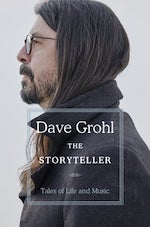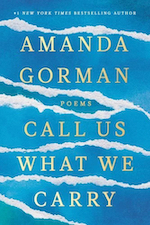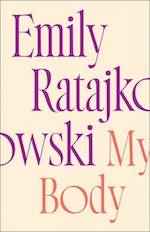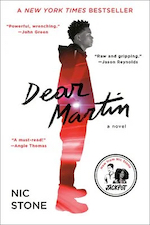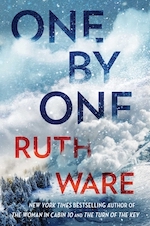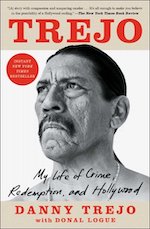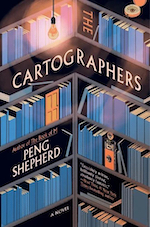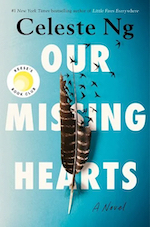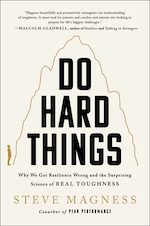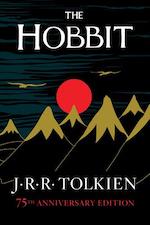Top reads for 2022
In no particular order, these are some of my favorite books that I read in 2022.
~ ~ ~
The Storyteller was such a comfortable read. It felt like I was listening to Dave Grohl rattle off stories as we sat around the fire pit in my backyard drinking beer on a clear-skied, brisk Saturday night. His writing style is casual, humble, and entertaining. Dave discusses loving his mother, music, fatherhood, and friendships, all being extremely important to him.
Synchronicity is a theme that runs through each and every story; the universe bringing together apparently disconnected events, either within a matter of minutes or sometimes decades. He does an admirable job of carrying a single thread through the tapestry of a story, weaving it in and out of seemingly different events, tying them together in often unexpected ways.
This is a must read if you love music, family, and how our lives evolve in unexpected ways. Since Dave narrates the audio book, I think that will be a must-listen sometime in the future.
Full disclosure: the Foo Fighters are my if-you-could-only-listen-to-one-band-for-the-rest-of-your-life band and Dave Grohl seems like one of the kindest celebrities on the planet. Needless to say, I pre-ordered this when I saw it announced (2021)…and then it sat on my shelf for several months. There always seemed to be ‘just one more book’ to finish before starting this memoir. And then Taylor Hawkins died unexpectedly in March 2022, which is when I knew it was time to start this journey with Dave. I couldn’t have chosen a better way to honor Taylor’s life, the last 25 years of which he was Dave’s best friend. They lived life together to its fullest, being just as goofy as any of us normal folk. Reading Dave’s stories of friendship and love for Taylor were bittersweet, making me tear up with joy hearing their stories and sorrow knowing there wouldn’t be any more for the two of them.
~ ~ ~
Amanda Gorman gives us such a lovely collection of poetry in Call Us What We Carry. She provides insights into oppression, feminism, race, and other sociological topics with words that flow so well, you’ll hardly realize their serious nature until you’re pulled in so deeply that you don’t want to stop reading. There’s a reason Gorman is the youngest inaugural poet.
I pre-ordered a physical hard cover copy and adore the varied typography and formatting of the different poems on the pages. It’s done sparingly and in unique ways, only when it enhances her words. I don’t know if the e-book versions have this same formatting, so I recommend reading the physical format for the full experience.
~ ~ ~
Emily Ratajkowski is a writer, let no one say otherwise. Her collection of essays in My Body is well written, entertaining, and insightful.
Emily’s life and rise to fame has been filled with insecurities, uncomfortable moments, and privilege. I appreciate that her experiences are described with humility, vulnerability, and a willingness to learn from them. This collection of essays takes us through moments of her life while also giving us an unfettered view into her private thoughts, how she dealt with the anxieties, and the transactions of power she participated in. The dichotomy of being a beautiful woman (as defined by male culture and heavily influenced by her mother) who uses her appearance to earn a living while being insecure about it is ever-present. Especially in her views about the power she has over her body and owning her image, which she describes in varying degrees of confidence. It’s fascinating to read her perspective.
~ ~ ~
With Dear Martin, Nic Stone gives us a modern dramatization of a story our country (the United States) knows all too well, even if it’s often viewed through extremely different lenses. This is exactly the sort of novel that puts you smack dab in the middle of the situation, building your empathy for Justyce’s experience. The book is geared towards young adults, but I recommend it for anyone looking for an engaging story about how young Black men can experience racism (realistic fiction).
I also recommend Stone’s follow up book, Dear Justyce, where an incarcerated teen, Quan, writes letters to Justyce throughout his own experience with racism.
~ ~ ~
Ruth Ware’s One by One was a fun and engaging multi-person locked-room (ski chalet) mystery/thriller! Admittedly, I’ve worked in the software industry for 22 years and enjoyed that the characters fit many of the stereotypical software employee archetypes I’ve encountered over that time. If I didn’t have that connection, this might not have made my list of top reads for the year…but I do, it is, and here we are.
I didn’t take it too seriously and (likely because of that) it was a fun read.
~ ~ ~
Trejo: My Life of Crime, Redemption, and Hollywood, by Danny Trejo & Donal Logue, caught me off guard, I didn’t expect to enjoy it as much as I did.
If you’ve been a movie fan at any point in the last 40 years, you’ve seen Danny Trejo on-screen (he’s been in 258 movies!). Curiosity was the main driver for me picking up this book. When it comes to celebrities, Trejo is an enigma, he doesn’t fit the stereotype, and I wanted to know more about him as a person. It might have helped that I savored our stop at Trejo’s Coffee & Donuts during a recent family trip to L.A.
His stories are heartfelt, candid, and explicit—he doesn’t hold back. Trejo isn’t afraid to point out his own faults, how they’ve landed him in jail or messed up relationships, and even how he repeated them, sometimes recognizing the lesson but unwilling/unable to do what he should in those moments. It’s fascinating to hear him tell the tales then analyze how and why they happened or explain his perspective and motivation at the time. His willingness to revisit and understand his past is refreshing. For example, he recognizes that toxic masculinity is a running theme throughout his life. He attributes this to both the patriarchical Chicano culture and the male role models in his childhood embracing that culture so vehemently (his descriptions, not mine). Trejo doesn’t use this as a means of excusing his behavior, but rather to understand its roots and how to change. Nor does he use this as a means of bashing his culture or the men in his life, quite the opposite, he dearly loves them.
A few things that I learned.
- Perhaps unsurprisingly, he really is a bad ass—it’s not an act—that has been to prison.
- Conversely, he’s one of the nicest guys in Hollywood, willing to go out of his way to help anyone who needs it.
- His main goal and driving desire in life is to support people going through addiction recovery.
- He came across acting accidentally, all because he was helping someone work through their addiction.
- When it comes to acting gigs, he never breaks a commitment and he takes almost every single offer (because he’s still afraid it might be the last), which has made him one of the most prolific actors of our time.
- This book was co-written with his close friend, Donal Logue, who is also an actor that you’ll likely recognize.
~ ~ ~
The Cartographers was recommended by a friend and immediately intrigued me because…I love maps. I have several hanging on the walls in my house and whole books dedicated to them. They’re more than just how to get somewhere or even pieces of art, they represent experiences we’ve had or will have, either in our minds or real life. So, it’s probably to be expected that I would enjoy this type of subject matter, but that’s not the whole of it.
Peng Shepherd has created an entertaining mystery adventure, slightly reminiscent of Indiana Jones if he’d been a mapmaker instead of an archaeologist (at least to this child of the 70’s and 80’s). And along those lines of watching Indy narrowly escape a rolling boulder or retrieve his hat from the other side of a closing stone door (both about to crush him), I willingly suspended a bit of disbelief and allowed myself to enjoy the ride.
Maps are love letters written to times and places their makers had explored.
~ ~ ~
Celeste Ng’s (pronounced “ing”) Little Fires Everywhere made my top reads of 2021, so I was intrigued when I discovered her follow up book, Our Missing Hearts. Steven King’s review in the New York Times further prompted me to read it. Here are a few of his thoughts.
Before the Crisis, Bird’s father was a linguist. Now he works in a library, shelving books. In Ng’s version of the American Nightmare, there’s no need to burn books. “We pulp them,” a helpful librarian tells Bird. (Bird doesn’t tell her he’s picturing book bonfires, but she intuits it.) “Much more civilized, right? Mash them up, recycle them into toilet paper. Those books wiped someone’s rear end a long time ago.”
On another level, “Our Missing Hearts” is a meditation on the sometimes accidental power of words. Why are Mr. Gardner’s library shelves so empty? Because students must not have access to books that “might expose them to dangerous ideas.” This isn’t dystopian fiction but actual fact, as rancorous school curriculum meetings and protests across the United States have proved.
Ng succeeds…partly because her outrage is contained and focused, and mostly because she is often captivated by the very words she is using. Bird’s father’s oldest habit, we’re told, is “taking words apart like old clocks to show the gears still ticking inside.” The gears in this story for the most part mesh very well. And Bird is a brave and believable character, who gives us a relatable portal into a world that seems more like our own every day.
Suffice it to say that I thoroughly enjoyed Our Missing Hearts and Celeste Ng is becoming one of my favorite authors.
~ ~ ~
Finally, we can dispense with the “fake toughness that is: control- and power-driven, developed through fear, fueled by insecurity, and based on appearance over substance.”
This book resonated with me. I played sports when I was younger and have always been fairly competetive, yet it never made sense to me when coaches told us to deal with (or ignore) the pain and play through it. That was our body telling us that something was starting to go wrong and the coaches were telling us to ignore those warnings.
In Do Hard Things: Why We Get Resilience Wrong and the Surprising Science of Real Toughness, Steve Magness contrasts society’s perpetuating misinterpretation of toughness with his four pillars of real toughness, based on the studies and research he’s evaluated.
- Pillar 1: Ditch the Facade, Embrace Reality
- Pillar 2: Listen to Your Body
- Pillar 3: Respond Instead of React
- Pillar 4: Transcend Discomfort
The pillars are further broken down into chapters, where the names tell you almost exactly what to expect. How we took the wrong lessons from the military explains how the military builds up recruits and teaches them how to handle the stress before submitting them to it. True confidence is quiet; insecurity is loud describes how our inner narrative impacts our confidence and ability to manage adversity. Your emotions are messengers, not dictators emphasizes that feelings serve as our first line of defense and help us make better decisions. Keep your mind steady advocates for opening ourselves up to discomfort, not ignoring it, which better positions us to handle those hard moments.
I appreciate that the author sprinkles TOUGHNESS MAXIMS throughout the book; short summaries of ideas that deliver powerful messages worth remembering. Here are a few that stood out to me.
Real toughness is experiencing discomfort or distress, leaning in, paying attention, and creating space to take thoughtful action. It’s navigating discomfort to make the best decision you can.
Embrace reality. Accurate appraisal of demands + accurate appraisal of our abilities.
When we don’t have control, we lose the capacity to cope. It’s when we have a choice that toughness is trained.
Feelings send a message, conveying information and nudging us toward a behavior.
Tough individuals learn to match perception with reality so that they marshal the appropriate response instead of an exaggerated one.
And one particular lesson that I found fascinating (and agree with), especially as an introvert who spends a lot of time alone with the thoughts meandering around in my skull and considers himself fairly resilient.
The skill of being alone in your head is a foundational piece of developing toughness.
You can also watch his 60 minute Talks at Google: Why we get resilience wrong and the surprising science of real toughness.
~ ~ ~
The Hobbit and The Lord of the Rings trilogy were my introduction into the world of epic fantasy. At the ripe age of 12, while on a cross-country road trip in an 18-wheeler with my family (my dad owned a furniture-moving business at the time and would often take the rest of us on the road with him in the summers), my restlessness and boredom prompted my step-mother to suggest The Hobbit while visiting a truck stop. I devoured it in a day and promptly asked for MORE OF THIS. We were able to find the three books that make up The Lord of the Rings and I finished those in a few more days. Then I immediately read them again. And I’ve re-read them at least a dozen times over the years since.
- The Hobbit: Or There and Back Again
- The Fellowship of the Ring (Book 1)
- The Two Towers (Book 2)
- The Return of the King (Book 3)
It had been a good ten years since my last re-read and then in late 2022, season one of The Rings of Power premiered (recommended). After watching the show and spending a night in a hobbit-hole (also recommended), I knew it was time to revisit these books that kickstarted my love of epic fantasy literature.
It was like putting on your favorite sweatshirt, curling up in the most comfortable of chairs next to a roaring fire (that is warm but not too hot) and sipping on a cup of tasty hot chocolate. It was wonderful to revisit the characters and their journeys.
It’s worth noting that I’ve changed since the last time I read these books; issues of equity are now much more top-of-mind for me. Tolkien’s writings have been analyzed up one side and down the other in every which way possible, but one thing that I’ve come to agree with is that they perpetuated our society’s inequities, even if unwittingly or by omission.
For example, Patrick Rothfuss discusses how Tolkien’s omission of women impacted the fantasy genre in this 9 minute video (warning for cussing). Here are a few excerpts.
There is literally not a single woman in The Hobbit. Literally literally literally literally not a single woman anywhere anywhere anywhere anywhere anywhere in The Hobbit. No one ever even thinks about their mom, and you didn’t notice, did ya.
He wrote a good book. I love it. I’ve read it to my kids at least three times. I grew up with it. It rides with me like a smooth stone next to my heart and I’ll carry it with me until I die. But also, unfortunately, the unintended consequence of him writing it the way he did excluded women from fantasy for the next 50-60 years.
Tolkien will always hold a special place in my heart and I’ll continue to re-read the series, but I’m so glad to see such a myriad of talented writers from different backgrounds contributing to the genre now: Tomi Adeyemi, Marjorie Liu, Martha Wells, N.K. Jemisin, Julie C. Dao, Sabaa Tahir, Naomi Alderman, and so many others. Please check out their works and enjoy the fantastical worlds they’ve crafted for our pleasure!
~ ~ ~
